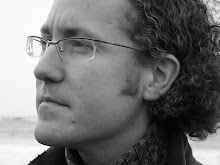I was discussing this last night with my girlfriend: why are all the fun films all over 10 years old? I’m talking about the films that you watch repeatedly and enjoy thoroughly every time. Films like Back to the Future, Bill & Ted’s Excellent Adventure, Princess Bride, The Never Ending Story, Labyrinth, the original Star Wars trilogy, Dirty Dancing, Grease (ok, maybe the musical/dance films are just me). Everybody probably has similar films even if they don’t share my tastes. Films that are associated with joy, fun, innocence, and fond memories that transport you back to the time and place that you first watched them every time you see them. Where are the comparable films today?
I can be a bit of a snob when it comes to films. I appreciate fine artistic films, seek out independent and foreign language films, and love to watch a film that knowingly toys with cinematic conventions and the restrictions of
Have I become hardened by film viewing? Does it become harder for films to connect with you on such an instinctive, emotional level as you get older and you start thinking about a film too much and not feeling? Or have the films changed? I can’t think of any films over the last 5 years that have moved me, enraptured me, and left me in a state of absolute joy. The only films that come to mind are animated and predominantly produced by Pixar. Only in the animated realm do filmmakers seem to have a licence to detach their films from the harsh realities of life and focus on stories that are pure escapism. Yes, it is easier to achieve this using cartoons but live dramatists have been achieving the same thing for millennia so why are all films, no matter how FX-driven, currently unable to sever their ties to reality? Take Back to the Future (BTTF) for instance. BTTF takes a cartoony highschool kid and transfers him to a world that is not his own (the 1960s). There he must overcome many obstacles (getting power into the time machine; stopping his teenaged mum falling for him, etc) so that he can return to an improved version of normality. This is a classic Aristotlean dramatic structure and works so well because of the initial detachment of the protagonist (Marty McFly) from his reality. In the unfamiliar world the normal conventions and expectations of reality can be abandoned (or rather replaced by historical, kitsch, cartoony conventions) and so experiences can be heightened and played out for pure fun. The shackles of reality do not bear down upon the protagonist.
I’m sure there are recent films that use a similar dramatic structure but all seem to carry too much of the reality with them. I don’t think I am alone in my disillusionment with the current decrease in film as pure entertainment. You just have to look at the genres that consistently perform well in DVD sales: comedies and horror films. Audiences don’t want to take dramas home. Artistically respectable, innovative, and experimental films are only bought by collectors who place them on a shelf at home almost for prestige value not because they ever actually intend to watch them (sadly, I often fall into this category). The films that audiences constantly return to are those that have a good, easily accessible story, and move them in pleasurable ways. Why, when I have gone to the DVD rental shop recently have I completely failed to find any films that fulfil these requirements? Where’s the nerd-wins-cheerleader’s-heart films? Where’s the girl-becomes-dance/music-diva films? Where’s the fantasy films with imaginations bigger than my own? Where’s the intimate awe, the enrapture, the comfort?
I think



